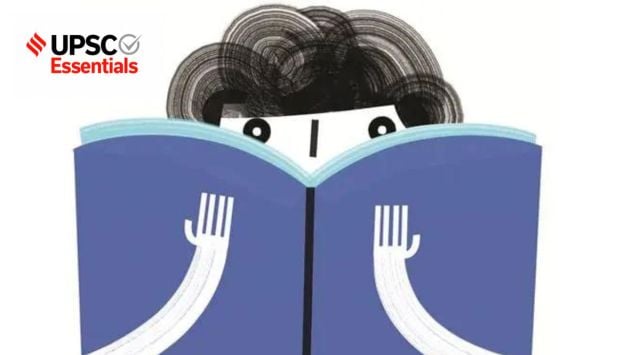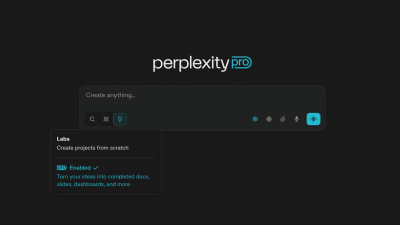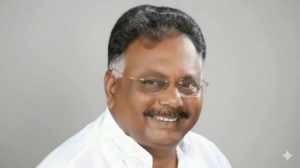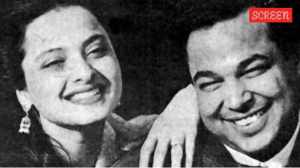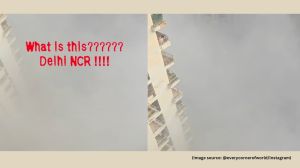
An interesting story written by Pallavi Smart in The Indian Express based on the initiative by Minal Karnwal, Development Officer at the Nandurbar Project, makes us aware of how Nandurbar taluka in Maharashtra have been experimenting with a unique way to learn. The project is called ‘Vedh Project’-based on the novel concept of heutagogy, a student-centred instructional strategy.
Relevance
Case studies are an important part of the UPSC civil services exam, especially the ethics paper. But case studies can also be very beneficial for value addition in the essay, GS mains and interview. With a dearth of examples, try to enrich your answers with articles and stories in The Indian Express.
Here recognising the efforts of Minal Karnwal, Development Officer at the Nandurbar Project on the subject of Education and learning gap specifically. Going Beyond the Case we put forward some relevant points from ASER report and highlighting the effort of Dr A.Sharath, IAS in the field of education. Future bureaucrats will find it useful if they want to bring a change in the field of education.
The Case
The pandemic years has led class 5 students like Bhavana and Kiran in Nandurbar taluka in Maharashtra to not know how to solve division sums, or read full sentences, which is part of the learning outcome expected at that level. The case remains relevant for many school going children for whom Covid resulted in significant learning losses.
The Issue
Need of good governance policy to bridge the gap in learning outcomes after two years of the pandemic which kept children out of schools.
Story continues below this ad
The Problems/ Challenges
— Along with the pandemic, general laxity had contributed to poor Foundational Literacy and Numeracy (FLN) among students.
— It was found that class 5 students did not know how to solve division sums, or even read full sentences, which is part of the learning outcome expected at that level.
— Remote learning opportunities for students, the quality and reach of such initiatives differed — in most cases, they offered, at best, a rather partial substitute for in-person instruction.
The Solutions
‘Vedh Project’ based on the novel concept of heutagogy
Story continues below this ad
— As part of a pilot project, the Ashramshalas, residential schools covered under the Tribal Development Project Office, in Nandurbar taluka in Maharashtra, have been experimenting with a unique way to learn.
— Here, teachers are facilitators, who instead of following the fixed pattern of facing the class and conducting lessons, set challenges for students and encourage them to learn their curricula by developing innovative methods on their own, in the form of group activities.
— The pilot project, called ‘Vedh Project’, is based on the novel concept of heutagogy, a student-centred instructional strategy. Launched last year for class 5 students in all 60 residential schools in this tribal district, educators say the project has helped to bridge the gap in learning outcomes after the Covid pandemic kept children out of schools for nearly two years. The Tribal Development Project Office in Nandurbar has now decided to extend the project to include classes 2 to 7.
— A baseline assessment conducted with help from the NGO Pratham revealed a huge learning loss. It all began with helping teachers identify where their class stood.
Story continues below this ad
— With the baseline assessment report at hand, teachers knew that their class had students with different learning levels and that they couldn’t teach everybody in the same manner.
— This was followed by a breaking up of the traditional seating arrangements, with teachers forming smaller groups. For instance, Shital Hande, a teacher at a school in Kochara in the district’s Shahada taluk, had divided her class into three groups to cater to students at different learning levels: those who could identify letters, words, and sentences.
The groups were then presented with challenges to help bridge the learning gaps revealed in the baseline tests.
— The goal of the project was to create a student peer group and then handhold them as they interact with each other as part of their learning process.
— Besides the baseline test, the evaluation process involved a ‘mid-level progress’ and an ‘end-line progress’ that teachers conducted. These two evaluations were deliberately called “progress” and not “tests” to avoid pressure on teachers that would have possibly led to fudging of data.
Story continues below this ad
— While for baseline and mid-level evaluations, teachers from the same 60 schools were shuffled, for the end-line assessments, teachers from nearby Zilla Parishad schools were invited.
— After the baseline test reports, which showed where each student stood in terms of expected learning outcomes, days were dedicated to implementing remedial teaching based on peer challenges in a class. After the mid-level progress, teachers had more clarity on the learning levels of their students. At this stage, teachers, too, are encouraged to learn from each other by way of sharing experiences or solving one another’s problems. This led to another round of remedial teaching in classrooms, where students were motivated to help each other learn.
— Finally, the end-line progress was conducted and that showed tremendous progress in the pilot project.
There were instances when children helped each other. Teachers developed challenges based on the skills of students. For example, a child who was good at multiplication was given a challenge to make it simpler for those in class who were struggling with it. This completely changes the way a class traditionally runs.
The Outcome
— According to data provided by the Tribal Development Project Office, while the baseline test showed that only 20 per cent of class 5 students in the district’s Ashramshalas could read an entire story and 14 per cent were still at beginner level, with no ability to identify letters, at the end of 55 days of the project, 41 per cent students could read an entire story, with no one left at the beginner level.
Story continues below this ad
— Karnwal says that at a time when schools are given fancy kits and encouraged to start smart-classes, the Nandurbar teachers devised their own creative teaching learning material (TLM) using sand, pebbles, electrical wires, ropes and handmade cards.
“We only gave them a framework to apply to their classrooms,” says Karanwal, adding that the initiative will now be scaled up to include all classes from 2 to 7 in all 60 schools covered under the Nandurbar Project.
Beyond the Case
1. The proportion of students in classes II, III, and VI in Chhattisgarh who are unable to recognise letters have doubled since 2018, coupled with a sharp drop in their basic mathematical skills, according to the Annual Status of Education Report (ASER) in October-November 2021, which captures Covid-related learning losses in one of the most backward states of the country.
2. ASER 2021 survey shows an increase in dependence on private tuitions and an absence of ready access to smartphones. Specific attention is needed to help make up learning losses, especially in the younger classes.
Story continues below this ad
3. Addressing learning deficits calls for pedagogical changes, making school a centre of healing. There are indications that government school teachers in Delhi are alive to the need for letting students recover lost ground at their own pace. The teacher is doubling up as a counselor, even as a friend who is sensitive to the needs of students requiring special attention.
4. The foot soldiers of governance are District Magistrates (DMs), who hold charge of the basic administrative unit of India and bring order, stability and often some very imaginative changes to those who live in their districts. Here highlighting the effort of Dr A.Sharath in the field of education.
The Indian Express Excellence in Governance Awards 2019 to Dr. A.SHARATH, IAS
Category- Education
District- Jagtial
Initiative- UTTEJAM-“Igniting the Minds of Students, Teachers & Parents”
Story continues below this ad
Uttejam is a programme to motivate SSC students and teachers to enhance their performance. Simple, goal-oriented measures introduced under the programme are bringing good results since two years. Students who are weak in subjects receive extra classes for one hour before the school starts and one hour after school hours. To ensure that students do not remain hungry while they are in the extra classes after school hours, they are provided with some nutritious snacks like poha or upma or tomato baath. It fuels up the students for the next one or two hours.
Point to ponder: For better learning in post-Covid classroom, schools must seize the opportunity to fix systemic issues, allow teachers more autonomy and promote meaningful learning beyond marks and test scores. Comment.
Post Read Q&A
Can you recall what you read?
1. What is a novel concept of heutagogy?
2. How can a civil servant bring a change in the field of education within his jurisdiction?
3. Can a good governance policy bridge the gap in learning outcomes after two years of the pandemic which kept children out of schools?
The UPSC Essentials Indian Express is now on Telegram. Click here to join our channel and stay updated with the latest updates.

